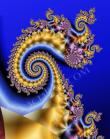According to chapter 2 of Douglass A. White’s Observer Physics, the word "believe" derives from the Indo-European root *LEUBH, which means to care, desire, love; with the intensifier prefix be. (This, by the way, is in the context of a discussion of four basic paradigms of belief: a priori, a postiori, empirical, and deliberate. Qubikuity is an example of the latter, in which an exploratory belief set is being articulated. Every blog post here is a piece of the puzzle, which is sometimes expressed more formally and other times more peripherally.)
Thus, to believe is to love being.
Of course, the idea of “belief” is much debased because today, most beliefs that are held, championed, and contest with each other for supremacy tend to be very low-order beliefs and have little integrity. A belief lacking integrity may be very persuasive to a believer but it fails to persuade non-believers because it is probably internally inconsistent, as well as inconsistent with general experience, scientific facts, or reason itself.
Why should we not resuscitate this oft-maligned term, the victim of shoddy usage? As we embrace the isness and while abandoning or rejecting beliefs that do not suit, let us adopt an attitude of belief whereby we love what is. Because we are worthy to recognize beauty and truth where we find it, and respond with our sensitive acceptance of that quality.
The results could be unbelievable.



